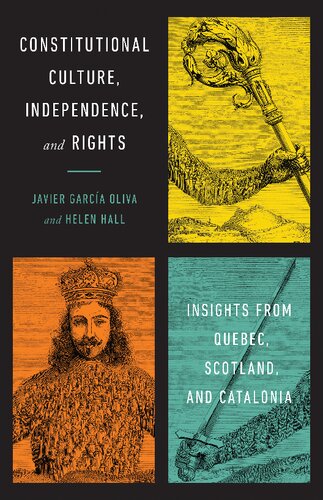

Most ebook files are in PDF format, so you can easily read them using various software such as Foxit Reader or directly on the Google Chrome browser.
Some ebook files are released by publishers in other formats such as .awz, .mobi, .epub, .fb2, etc. You may need to install specific software to read these formats on mobile/PC, such as Calibre.
Please read the tutorial at this link: https://ebookbell.com/faq
We offer FREE conversion to the popular formats you request; however, this may take some time. Therefore, right after payment, please email us, and we will try to provide the service as quickly as possible.
For some exceptional file formats or broken links (if any), please refrain from opening any disputes. Instead, email us first, and we will try to assist within a maximum of 6 hours.
EbookBell Team

5.0
80 reviewsIn Constitutional Culture, Independence, and Rights, Javier García Oliva and Helen Hall coin the term "constitutional culture" to encapsulate the collective rules and expectations that govern the collective life within a jurisdiction. Significantly, these shared norms have both legal and social elements, including matters as diverse as standards of parenting, the modus operandi of police officers, and taboos around sexuality. Using Quebec, Scotland, and Catalonia as case studies, the book delves into what these constitutional battles mean for the rights, identity, and needs of everyday people, and it powerfully demonstrates why the hypothetical future independence of these regions would have far-reaching practical consequences, beyond the realm of political structures and academic theory.
The book does not present a magic bullet to resolve debates around independence – this is not its purpose, and the text in fact demonstrates why there is no objectively optimal approach in any or all contexts. Instead, it seeks to shed light on aspects of these situations often overlooked in discussions around the fate of nations, and it addresses what the consequences of constitutional paradigm shifts might be for individuals. Constitutional culture is a complex web of interconnected understandings and behaviours, and the vibrations from shaking or cutting a fundamental strand will be felt throughout the structure.